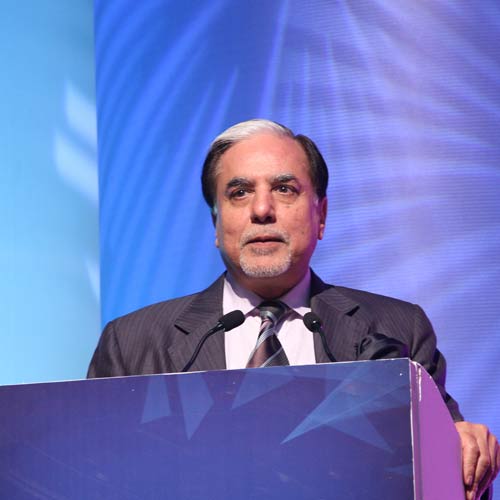Play by the rules- Corporate social responsibility is here to stay | |
| Commentarao - S.L. Rao | |
 The board committee shall formulate the company policy for CSR. The activities under CSR shall cover those listed out in Schedule VII of the Bill. The committee will also recommend the expenditure to be incurred for CSR activities and monitor it. The activities covered are now known and the ministry has been responsive to requests from non-governmental organizations to add to them. Unlike donations under Section 80G of the Income Tax Act, these expenditures are not eligible for any tax concessions. (But donations to the prime minister's relief fund are so entitled.) When I wrote on this subject in 2012, at the time it was first proposed, I argued against imposing philanthropy on companies. Though it was not yet compulsory, shortfalls had to be explained. The basic duties of a company are to run its operations honestly, follow all laws and regulations, be fair to employees, customers, suppliers, repay debts on time, and give a competitive return to shareholders. Charity and philanthropy should be at the discretion of the company. In fact, many companies in the past years have focused on employees and the local communities they are with, and on causes which give a good name to the company. However, the law now exists and companies have to plan on spending a government-determined part of the profits each year on CSR. Companies are expected to adopt the CSR policy drafted by a board committee. In family-controlled businesses, these committees are likely to represent the views and interests of the family. Even in other companies, the principal shareholders will aim to determine the policy. Other board members may play a passive role in determining the purpose, implementation agency, monitoring and evaluation. The policy has to state who are the target populations for the proposed CSR activity, and what this activity will be. Some companies might appoint consultants to help define the tasks and monitor the implementation. There are many ways of organizing the CSR expenditure. The company might earmark some of its people for the purpose. In some, CSR activity may be a way of training new recruits in the Indian reality by exposing them to these causes. Some companies even attach experienced managers to the activity for a few months or years. Many other companies might see this activity as a diversion from their basic business and will hire outside agencies, particularly for implementation. In many instances, particularly where the company is related to others with common ownership, all of them might team up to have a single common agency of their own for the CSR activity, its conduct and supervision of the implementation. But a well-run company will be loath to allow its hard-earned money to be wasted. It will decide on its objectives and target beneficiary populations, set up a management information system to monitor achievements in relation to targets, identify constraints and conceptualize how its experience could be replicated by others in India. Company annual reports are now being released for the first year after the CSR provision was inserted in the Companies Act. Companies have to make the first annual report on their CSR activity. The CSR expenditure does not stop at the two per cent of profits specified in the act. Companies have to spend on manpower to ensure that the implementation by a partner NGO or by its own CSR department is being done well. Foreign companies have another problem when they engage NGOs to do the job. Present rules under the Foreign Contribution Regulation Act require that the recipient must be registered under FCRA. This is time-consuming (may take three years). A foreign company has to wait to engage the implementing agency. This puts constraints on its CSR expenditure until it sets up its own implementation department. Tata companies have followed the practice of all their companies pooling their CSR spending. Many years before the recent legislation, each Tata company was working to a set target for its CSR expenditure.The money was given to Tata trusts. This has made Tata the most significant spender on CSR activity in India. Also, these trusts are very professionally-managed and refer to their past experiences in deciding how to select partners, beneficiaries, effective ways of execution, monitoring and evaluation of achievements without interference. An issue that will hound companies is the question of the ethical soundness of their associate NGO. For example, can a company's donations be used for rehabilitating retired terrorists or their families? If a company or an NGO is engaged in activities said to go against national interests, should it be made a partner? Some highly-principled NGOs will conduct diligence on potential donor companies. Thus there are NGOs that do not accept money from aerated soft drinks-producers because of the product's adverse effect on child health. Others will not go near Monsanto because of its connection with genetically-modified food against which there is a protest movement in India. NGOs might refuse donations from companies against whom there are rumours or allegations. Similarly, they might avoid environmentally-polluting companies.There are, of course, many NGOs which do not care about the funding sources and their reputations as long as the money is available. There is also the question of compliance and audits. Well-run companies do not want to see their money wasted. They will set up a strong internal audit system and help the NGOs to keep proper record of expenditures. Donor companies must also ensure that their NGO partners treat their employees in a civilized way, ensure integrity in their work, and so on. This is another cost that the companies have to bear in addition to CSR spends. Rich entrepreneurs like Bill Gates, Tim Cook, Azim Premji, Warren Buffett among others, have applied the minds that built their colossal businesses to philanthropy. Many companies have found (Tata, Wipro, Shiv Nadar, Infosys) that good philanthropy also improves corporate image and share values. Compulsory CSR is here to stay. Companies must prepare themselves to do it well.
The author is former director-general, National Council of Applied Economic Research
|
There are several sectors in India, like education or health, where government intervention alone is not enough and hence CSR must be encouraged.
The philosophy of philanthropy might be an old one in Indian society, but in the modern world, the concept has taken on several hues. Many companies today run social endeavours called Corporate Social Responsibility (CSR).
But has CSR reduced to a mere marketing activity these days? That's the question that this edition of The Dr. Subhash Chandra Show explores. Do companies use CSR just to be seen as doing good, or do they actually make an effort to make a difference?
The Companies Act, 2013 states that it is mandatory for any corporation having a net worth of over Rs 500 crore, a turnover of over Rs 1,000 crore or a net profit of Rs five crore or more to spend at least 2% of its average net profits over the three years on CSR activities.
However, CSR should be more than just clicking a few 'feel good' pictures and uploading them on social media. "It is more important to become a good corporate citizen before you get into CSR activities," Dr Chandra said.
There are several sectors in India, like education or health, where government intervention alone is not enough and hence CSR must be encouraged.
However, these initiatives must not be hypocritical. "CSR is hypocritical if it is not solving a real issue or problem which exists in society," Dr Chandra said. Having adequate audit systems in place that monitor whether the money being allotted is being properly utilised is also important. Watch the whole episode here:





